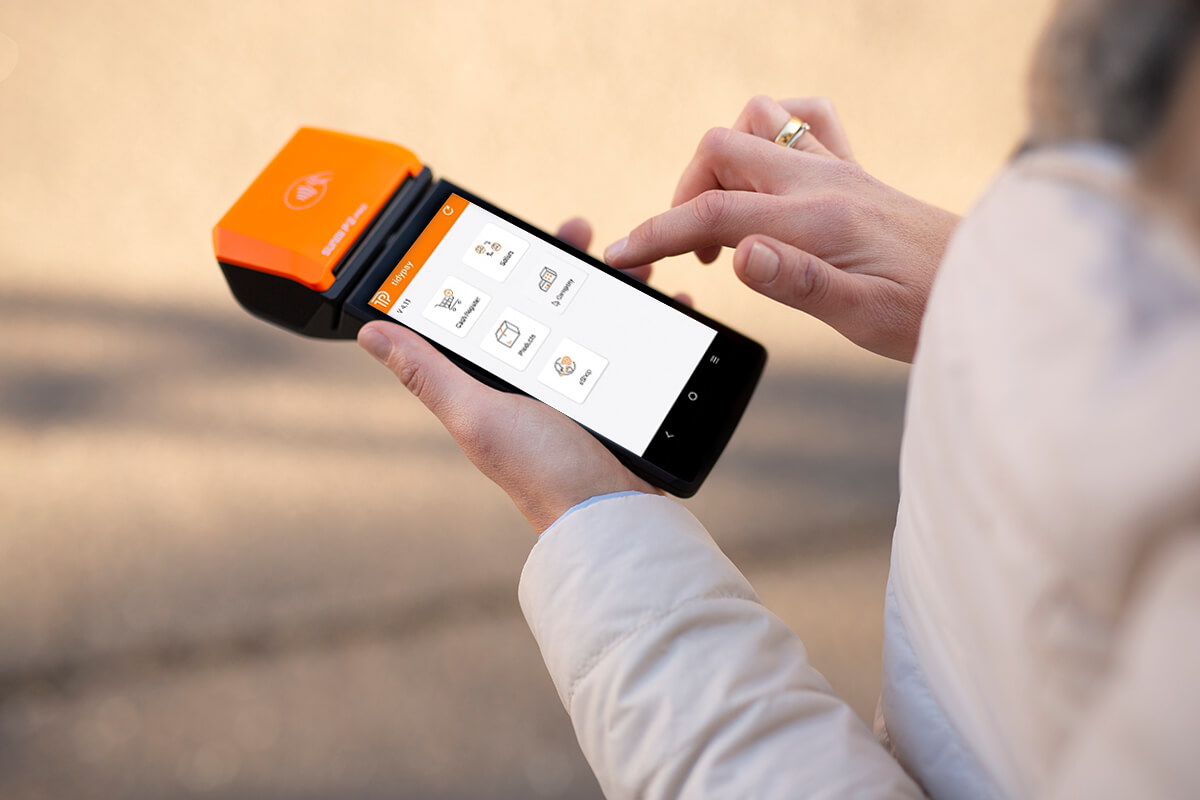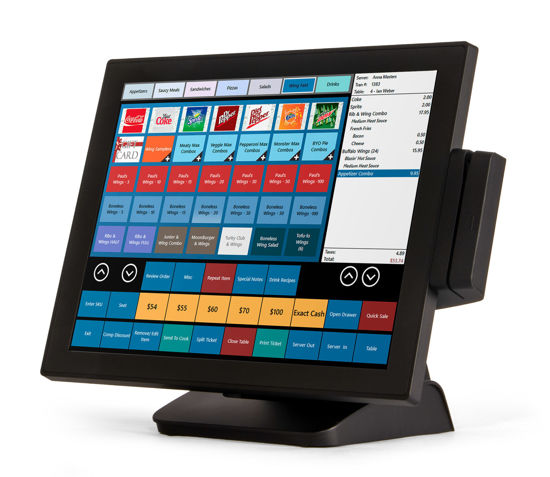The 6-Second Trick For Clover Pos
The 6-Second Trick For Clover Pos
Blog Article
Restaurant Pos Things To Know Before You Buy

Pos System for Small Business: Retail Point-Of-Sale Solutions Streamline Deals
Restaurant Pos for Dummies

Hardware Parts of a Point of Sale System What makes a POS system tick? It's not simply software; the hardware plays a starring role. Think of it as the body to the software's brain. Without the right hardware, even the most sophisticated POS software application is just a pretty face. Vital POS Hardware So, what are the must-haves? Let's break it down. The central processing unit, typically a computer system or tablet, is the heart of the operation. The monitor or touchscreen display enables personnel to connect with the system. A barcode scanner speeds up the checkout procedure. Keep in mind the days of manually going into each code? The dependable receipt printer offers consumers with a record of their purchase. A money drawer keeps your cash safe and get more info arranged. A card reader allows customers to pay with credit or debit cards. Diving Deeper: Beyond the Basics However wait, there's more! Depending upon your business, you might require specific hardware. A restaurant might include kitchen printers to relay orders, while a retail shop might use label printers for product tagging. Ever wonder how your regional bakery quickly prints those delicious-looking labels? Picking the Right Hardware: A Balancing Act Choosing the best hardware isn't practically purchasing the most costly devices. It's about discovering the sweet area between performance, sturdiness, and spending plan. A small company just starting might choose for a more basic setup, while a high-volume seller will need robust, high-performance machines. Is it better to buy brand-new or used? Consider your options carefully. A brand-new system provides the latest technology and warranty protection, however a refurbished system can conserve you cash. The Future of POS Hardware What does the future hold? Expect to see much more combination with mobile gadgets, biometric scanners for staff member authentication, and advanced analytics dashboards showed on bigger, clearer screens. Imagine a world where inventory is immediately upgraded in real-time as products are scanned-- a world where you can track your best-selling product from anywhere in the world. The possibilities are endless, and the hardware is continually progressing to meet the demands these days's organizations. Are you prepared to upgrade your point of sale system?
Software Application Characteristics and Capabilities: The Heart of Your POS System
Ever enjoy a skilled barista glide through a busy morning rush? Their secret isn't simply caffeine; it's a seamless dance with their POS system. The software is the conductor of your business symphony, orchestrating everything from sales to inventory. What notes should you be listening for? What capabilities genuinely matter in today's market?
Inventory Management: Beyond Counting Beans
Forget spreadsheets that haunt your dreams. Modern POS systems provide real-time inventory tracking, notifying you when your stock of artisanal coffee beans dips precariously low. Consider it as a digital guardian angel, preventing those uncomfortable "Sorry, we're out!" minutes to customers. What if you could likewise anticipate need based upon historic data? Lots of systems now provide forecasting tools, an effective weapon versus overstocking and lost sales. This helps avoid the circumstance of running out of popular items or collecting excess stock of slow-moving products, both of which can constrain cash circulation and space.
Sales Reporting and Analytics: Deciphering the Data
Sales information is the new gold, and your POS system is the miner. Forget feeling in one's bones how much you sold today. Dive deep into the information to uncover trends, recognize your best-selling products, and understand consumer behavior. Which menu item sets completely with the day-to-day special? Which promotion resonated most with your clientele? These insights are not just intriguing; they're actionable intelligence. Without trusted sales reporting, navigating the complexities of organization decision-making ends up being like sailing without a compass, increasing the chance of errors and missed chances.
Consumer Relationship Management (CRM): Structure Bridges, Not Walls
Remembering a routine consumer's name and favorite order is lovely, but scaling that individual touch is difficult. POS systems with CRM capabilities permit you to track consumer purchase history, preferences, and even birthdays. Think of instantly offering a discount on their birthday-- a small gesture that cultivates loyalty and encourages repeat service. There is the prospective snag of bad data quality, which can lead to unreliable customer profiles and ineffective marketing efforts.
Payment Processing: Enhancing the Transaction
The checkout experience can make or break a sale. Seamless combination with various payment approaches-- credit cards, mobile wallets, even copyright-- is non-negotiable. Can your system manage split payments? Does it offer secure tokenization to safeguard customer information? A cumbersome payment procedure is like striking a sour note in your organization symphony, potentially interfering with the whole efficiency. Making sure compatibility with developing payment technologies and adherence to security requirements are vital for keeping customer trust and functional effectiveness.
Worker Management: Keeping the Group in Sync
From clocking in and out to handling permissions and tracking performance, staff member management includes improve operations and improve accountability. Is scheduling a nightmare? Many POS systems provide integrated scheduling tools, optimizing staffing levels based upon predicted demand. A common obstacle that is frequently overlooked is the difficulty of integrating staff member management performances with payroll systems, which can lead to errors and inefficiencies in wage computations.
Advanced Characteristics: Leveling Up Your Operations
- Table Management: Suitable for dining establishments, this function permits you to picture your dining space, track table status, and manage appointments.
- Loyalty Programs: Reward your best customers and motivate repeat business with incorporated commitment programs.
- Online Buying Integration: Seamlessly incorporate your POS system with online buying platforms to expand your reach.
Picking the best POS system has to do with more than just functionality; it's about finding a partner that can grow with your service. Consider your existing needs, expect future development, and do not hesitate to ask the difficult concerns. The best software application can change your service from a chaotic cacophony into a harmonious work of art.
Industry-Specific POS System Applications
Think about the regional bakery, bustling with morning consumers yearning fresh croissants. A generic POS system might manage deals, but can it handle complicated recipes, track active ingredient stock, or automatically change production schedules based on sales data? Most likely not. That is where the beauty of industry-specific POS systems shines.
Restaurants and Hospitality
For busy restaurants, speed and accuracy are vital. How lots of times have you seen servers juggling orders, adjustments, and splitting bills, all while trying to supply exceptional service? A dining establishment POS system simplifies these processes, permitting table management, cooking area order tickets, and even online purchasing combination. These systems often consist of features like ingredient-level stock tracking, vital for handling food expenses and decreasing waste. Ever wonder why your favorite dish is often unavailable? It might originate from an absence of proper stock management.
- Table Management
- Kitchen Area Order Tickets
- Online Buying Combination
- Ingredient-Level Stock Tracking
Retail Solutions
Retail, with its varied inventory and client interactions, demands a different set of tools. Think of a shop clothes shop struggling to keep an eye on sizes, colors, and seasonal collections utilizing a standard checkout system. An industry-specific retail POS system provides features like barcode scanning, client loyalty programs, and detailed sales reporting. These systems can even integrate with e-commerce platforms, providing a smooth omnichannel experience for clients. Did you understand some retail POS systems can forecast future sales patterns based upon historical data? Now that is effective!
The Perils of a Mismatch
Choosing the incorrect POS system can produce significant functional obstacles. A clothing shop using a dining establishment POS, for example, would find it inappropriate for managing inventory with sizes and colors. The absence of appropriate reporting and analytics might result in mistaken purchasing choices and lost income. The outcome could be similar to attempting to fit a square peg in a round hole.
Secret Considerations
Selecting an industry-specific POS system needs careful assessment. Consider your service's special requirements and operational workflows. Does the system integrate with existing software application? Does it use the needed reporting capabilities? Is it scalable to accommodate future growth? A well-chosen POS system is not simply a deal tool; it's a tactical property that can drive performance, enhance customer satisfaction, and ultimately, boost your bottom line. Keep in mind, it is a financial investment in your service's future, not simply an expense.
Security Factors To Consider for Point of Sale Systems
Ever heard the tale of the mom-and-pop shop that lost whatever because of a single, ignored security flaw in their POS system!.?. !? It's a cautionary tale, and it highlights a crucial aspect typically eclipsed by the appeal of expensive functions and structured operations. The truth is, a POS system is just as good as its security. What excellent is a system that crunches numbers in a flash if it permits crooks to swipe customer's information just as rapidly?
The Vulnerability Minefield
The digital landscape is a battlefield. Every POS system, no matter size or sophistication, is a potential target. Are you truly prepared for the risks lurking around the corner? The genuine pinch comes when you discover that your out-of-date software application has a gaping hole that hackers can exploit, turning your company into an unwitting accomplice in identity theft. The trouble is that hackers are crafty and are always changing their techniques.
Common Security Gaps and Expert Tips
- Weak Passwords: "Password123" isn't cutting it. Usage strong, distinct passwords for all POS system accounts and change them frequently. Two-factor authentication is a must.
- Unsecured Networks: Your Wi-Fi is like leaving the front door open. Protect your network with strong file encryption (WPA3 if possible) and consider a different network for your POS system.
- Outdated Software: Software suppliers patch security holes all the time. Stopping working to upgrade resembles welcoming difficulty. Set up automatic updates or schedule regular maintenance.
- Worker Training: Your staff is your very first line of defense. Train them to recognize phishing attempts, protect passwords, and report suspicious activity.
Data Encryption: Your Guard Against the Dark Arts
Consider data encryption as a secret code. It scrambles sensitive information, like charge card numbers, making it unreadable to unauthorized users. Without file encryption, your consumers' financial details resemble sitting ducks, ripe for the selecting by cybercriminals. It's not simply about protecting your consumers; it has to do with safeguarding your track record and preventing substantial fines.
PCI Compliance: The Rulebook You Can't Ignore
If you accept charge card, you're bound by the Payment Card Industry Data Security Requirement (PCI DSS) It's a set of security requirements designed to secure cardholder data. Stopping working to comply can result in fines, penalties, and even the loss of your capability to process credit card payments. It's a headache, yes, but it's a required one. Believe of PCI compliance as the expense of doing company in the digital age.
Consider this: every transaction processed through your point of sale is a potential entry point for harmful stars. By carrying out robust security measures, you're not just protecting your organization; you're protecting your consumers' trust and making sure the long-lasting practicality of your operations. The security of your POS system isn't just a technical issue; it's an organization crucial. It requires continuous vigilance, proactive procedures, and a commitment to remaining ahead of the curve.